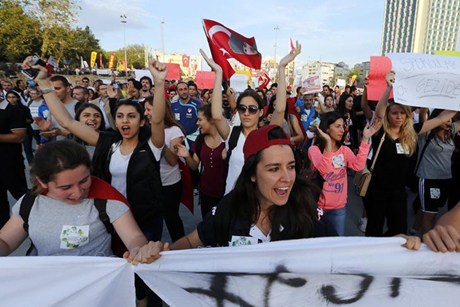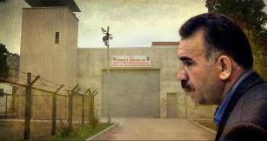The Turkish Protests and Erdogan's Disappearing Dreams
by Gareth Jenkins (vol. 6, no. 11 of the Turkey Analyst)
The unprecedented anti-government protests that have erupted across Turkey pose the most serious challenge to Prime Minister Recep Tayyip Erdoğan since his Justice and Development Party (AKP) first took office in November 2002. Although it is still too early to assess the extent of the threat to Erdoğan’s grip on power, he has been seriously weakened. At the very least, his dreams of establishing a presidential system and ruling the country singlehandedly for the next decade have suffered a fatal blow.

Calculating Ambivalence: The Imrali Process and the Balance Between Kurdish and Turkish Nationalist Violence
by Gareth Jenkins (vol. 6, no. 9 of the Turkey Analyst)
On May 8, 2013, the Kurdistan Workers’ Party (PKK) formally began to withdraw its militants from Turkey as part of the peace negotiations between the ruling Justice and Development Party (AKP) and imprisoned PKK founder Abdullah Öcalan. Prime Minister Recep Tayyip Erdoğan is likely to wait until the withdrawal is complete – a process that could take several months – before announcing what, if any, concessions he is prepared to make to Kurdish nationalist demands. Managing the resultant uncertainty will be a major challenge, particularly given the diametrically opposed hopes and fears of Kurdish nationalists and Turkish nationalists. Erdoğan’s record suggests that the Kurds have more reason to be skeptical. But, in the short-term, assuaging Turkish nationalist fears could prove to be the greater problem.





